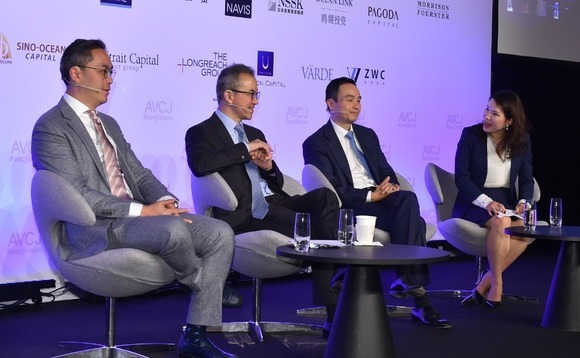
Investors cautiously optimistic on China buyouts - AVCJ Forum

The emergence of willing sellers, a pullback in competition from strategic investors, and greater availability of leveraged financing are contributing to more buyout deal flow in China.
"The market is emerging in China, I wouldn't say it is mature," Frank Tang, chairman and CEO of FountainVest Partners, told the AVCJ Forum. "Most entrepreneurs are healthy and young, so for generational succession we are only seeing the tip of the iceberg. When that comes it will be a huge wave."
This potential is evident in the Blackstone Group's portfolio. The firm has bought two businesses from Chinese entrepreneurs in recent years - one of the founders was in his 80s and the other in his 70s.
Edward Huang, head of private equity for Greater China and Korea at Blackstone, observed that succession is often one of several challenges companies are facing. They are also becoming more global, larger in size, and more operationally complex - and they need systems and talent to manage this development. "Some of them haven't been great about hiring professional management," Huang said. "Those are things that we do really well."
Further control opportunities are coming as the founders of Chinese companies listed in the US explore privatizations in partnership with PE partners and as foreign multinationals exit the China market. There are already numerous examples of each from Focus Media and Feihe International to Metro and McDonald's.
"The China business environment is changing really fast and some multinationals cannot keep up with this trend," said Michael Chen, a director at Centurium Capital. "[In addition] multiple layers of reporting systems make the decision-making process really long, so some companies just choose to exit China."
Slower growth, increasing operational complexity and intensifying local competition are also dissuading foreign strategic investors from trying to enter the China market. As such, private equity players can have a clearer run at some deals.
"Strategic capital is not as intense as it was a few years ago. There was a wave where multinationals were very, very intense competitors for assets in China and domestic strategics were getting access to us dollars," said Blackstone's Huang. "In today's market, some of those other sources of capital are not as aggressive as they were in the past."
Another favorable development for private equity is readily available transaction financing. FountainVest participated in a consortium that privatized US-listed Chinese outdoor advertising business Focus Media in 2013. The deal was supported by debt financing at 2.6x EBITDA sourced from nine banks.
Now, debt-to-EBITDA multiples of 5-6x are routine and covenant-lite loans of five years to seven years are available, said Tang. Chinese banks are also aggressively pursuing financing mandates, having developed the requisite capabilities. "Today, the Chinese banks would be our first call for a take-private," Tang added.
Latest News
Asian GPs slow implementation of ESG policies - survey
Asia-based private equity firms are assigning more dedicated resources to environment, social, and governance (ESG) programmes, but policy changes have slowed in the past 12 months, in part due to concerns raised internally and by LPs, according to a...
Singapore fintech start-up LXA gets $10m seed round
New Enterprise Associates (NEA) has led a USD 10m seed round for Singapore’s LXA, a financial technology start-up launched by a former Asia senior executive at The Blackstone Group.
India's InCred announces $60m round, claims unicorn status
Indian non-bank lender InCred Financial Services said it has received INR 5bn (USD 60m) at a valuation of at least USD 1bn from unnamed investors including “a global private equity fund.”
Insight leads $50m round for Australia's Roller
Insight Partners has led a USD 50m round for Australia’s Roller, a venue management software provider specializing in family fun parks.








